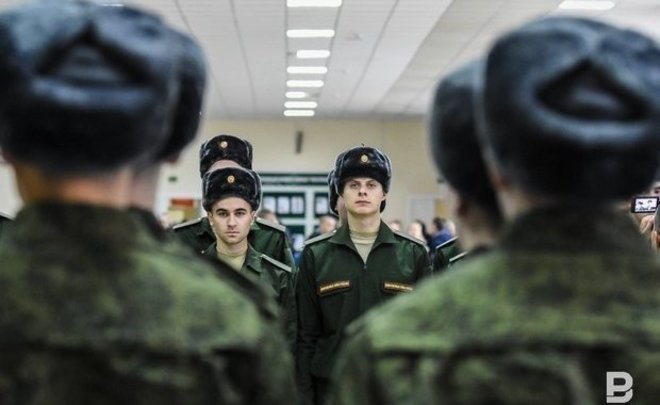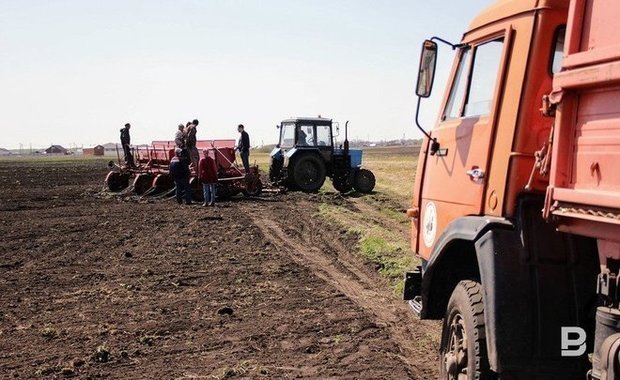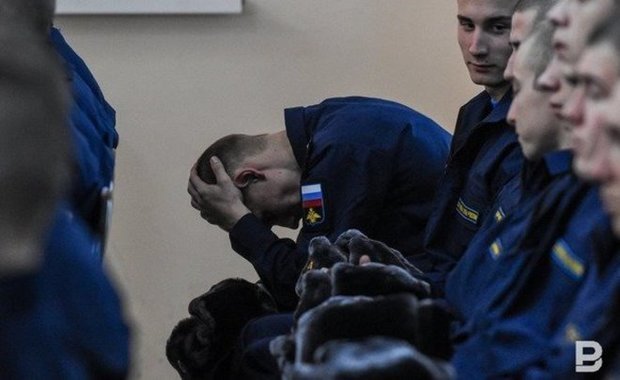Retraining women, a mobilisation tax, and ‘reservation’ of farmers
How mobilisation is affecting businesses, and what measures could offset this impact

Ilnar Siraev, Commissioner for the Rights of Entrepreneurs in Nizhnekamsk Municipal District, discusses how partial mobilisation is affecting businesses and what ways it is possible to help entrepreneurs — in the author's column for Realnoe Vremya. Owner of own business network and deputy from A Fair Russia party Siraev reflects on which industries can potentially suffer the most and suggests introducing a kind of “mobilisation tax” — in his opinion, a number of businessmen called for mobilisation will bring much more benefits if they continue to work in the real sector and supply the country's economy money.
Business processes at large enterprises will be less affected

In the standard mode, it is possible to train a person to be an operator of technological units in four to five months. But if you set a goal, I think you can cope in a month and a half — and thus cover up the gaps that have temporarily formed in the ranks of employees. In addition, at large factories, mobilisation is not one hundred percent — on average, out of ten people in a shift, only two are mobilised, eight remain to work. And during the time that the new staff is being retrained, these eight employees are able to cope with the work of ten. According to my estimates, for example, from Nizhnekamsk factories, a maximum of 7% of the total number of employees can get under partial mobilisation.
There is also such a nuance: large enterprises, unlike small businesses, will also additionally take care of their mobilised employees. And there are already many such precedents in the republic. For example, Ammonia has taken over the payment of mortgage loans of its employees for the time they are absent. Kazanorgsintez has collected sets of clothing and basic necessities for the mobilised factory workers, including mobile phones and gas stoves. Other factories are also involved in this work. But if they mobilise one of the trainers in my fitness club, the maximum I can help is to allocate twenty thousand to him for basic necessities. Unfortunately, neither I nor my colleagues-managers from small businesses have the opportunity to pay his salary during his absence, and even more so to pay his loans.

Car services, fitness clubs, farms — at risk
So, a small business will suffer greatly from the temporary staff depletion. For example, let's take a car service: let's say five men work in it. Even if one of them leaves for the special military zone, this is already minus 20% of the workforce for an indefinite period. At the same time, the “target audience” of military enlistment offices works in car services: many of their employees served in the army, they are not covered by reservations, they usually have no serious health restrictions. The same situation is among taxi employees, tyre repair shops, and many sole proprietors.
From the experience of my business, I can say that fitness clubs can suffer greatly. After all, male coaches very often have experience of serving in the army. And if they leave en masse for the fields of special operations, it will hit the industry hard. The Fitness Association of Russia has already asked the authorities to ensure that their employees receive a reservation. At my fitness club, five out of seven trainers are men, and three of them fall under mobilisation because they served. Of course, I can try to replace them with female coaches, but again, if Nizhnekamskneftekhim or Tatneft temporarily opens a sports instructor vacancy with me, the employee will choose them because their social package is better.

The agricultural sector — peasant farms — may be particularly affected. Many of the farmers today have taken large grants from the state, which they have to “work out” for several years. Imagine: there is a farmer who works with his wife, sons and a couple of auxiliary workers. He took a grant to buy 50 heads of cattle in order to take care of the animals himself and develop his farm. He also carries hay on a tractor and cleans snow in winter — he does a lot of physical work. And here he falls under partial mobilisation.
Who will work on his farm instead of him? After all, when he received funding from the state, he did not count in his business model that he needed to take a manager on his salary who would look after his bulls. He planned to do the lion's share of the work on his own with the support of his household. It's not even about money, but the fact that it is extremely difficult to find a suitable, healthy, intelligent person in the village to whom you can entrust the farm. At the same time, stopping the work of agricultural producers will lead to a weakening of the country as a whole: someone has to produce products, and farmers are the first and main link in this chain!
Seven days to transfer cases is not enough
When the head of an individual entrepreneur or a tiny PLC, the owner of a business, is mobilised, this may even lead to the collapse of the enterprise. As the commissioner for the rights of entrepreneurs in the Nizhnekamsk municipal district, I already receive requests on this topic: “What should I do if I receive a summons?". Yes, the state gives 7 days for the head to have time to transfer his affairs to someone, write all the required powers of attorney, tell all the nuances. However, will this be enough time? I'm not sure. Even if he finds an adequate and qualified replacement, it will take at least thirty days to transfer the cases without compromising the business.
And none of the urgently mobilised managers is sure that even if they manage to issue all the necessary documents in seven days, the business will continue to work in his absence. Many small businesses will simply cease to exist, because most of the processes are directly tied to a single person. And if you remove him from the structure of the enterprise for several months, the imbalance of the company's work may be so strong that it will not be possible to return to the balance.
What should his employees do in this case? Finding a job quickly on the same terms will be a new challenge for them and their families and an obvious way out of their comfort zone. Especially if we are not talking about a relatively large city, but about a small village, where the supply on the labour market significantly outstrips the demand for employees.
How to solve the problem?
In the conditions in which the country found itself, it is impossible to talk about the abolition of mobilisation. However, it would be possible to offset some of the negative consequences that it potentially brings to business. I would suggest taking the following measures (point-by-point):
- In order to close the vacant positions, it is necessary to retrain women, people over 50 years of age and other citizens who are not subject to mobilisation for working professions.
- To provide a reservation to entrepreneurs conducting socially significant businesses. I mean, first of all, representatives of the real sector that benefits the state: those who feed people, clothe, produce everything that society cannot function without. After all, it is impossible to stop the process of sowing bread or milk production, someone must be engaged in tailoring and repairing cars. Of course, this business must exist for a certain time (so that no one has the opportunity to cheat in this way, urgently opening a bakery or sewing workshop), it must pay taxes in a disciplined manner, not have violations. And such entrepreneurs should have, for example, at least 10 people employed.
- It would be worth reserving agricultural producers separately from the draft — again, not everyone in a row, but those who have been working for at least a year.
- I would increase the deadline for the transfer of cases from the mobilised heads of the enterprise to their temporary deputies to 30 days — during this time a sensible deputy will be able to delve into the subtleties, and the threat to small businesses will sharply decrease in the country.
- Entrepreneurs who are given reservations, I would suggest to impose an additional tax to help the army. And if a person refuses to pay such a tax, remove the reservation from him. After all, right now the state has a powerful expenditure item, and with such a “mobilisation tax”, part of these expenses could be covered. To put it quite crudely, businessmen from socially significant spheres could thus alternatively repay their debt to the state — literally with money. Many will bring much more benefit if they transfer money to the needs of the special military operation than if they leave to fight themselves.